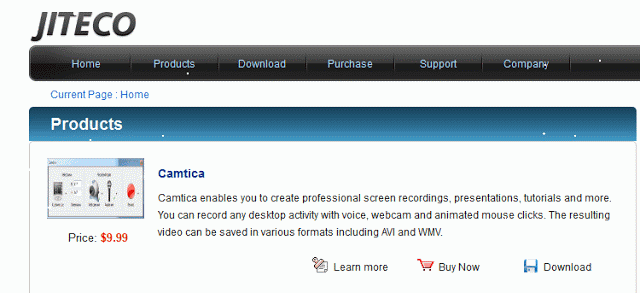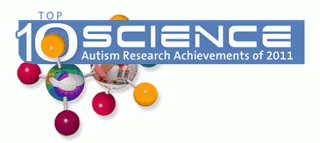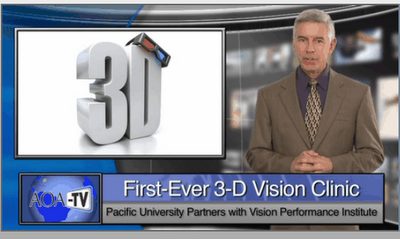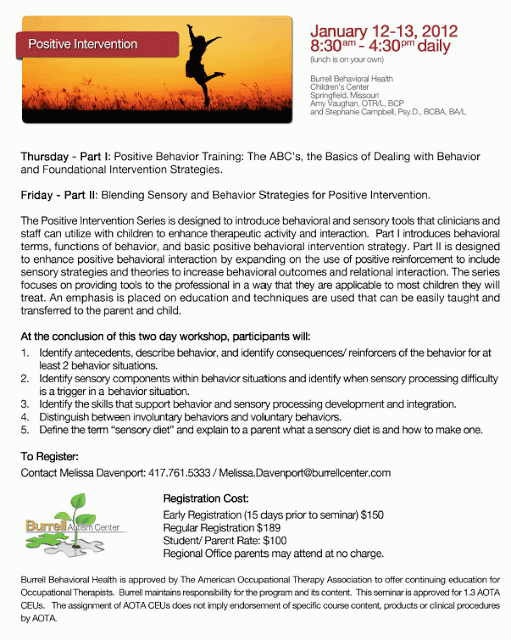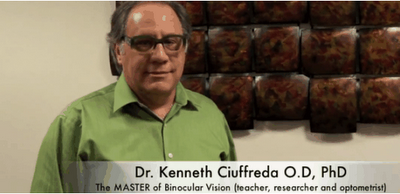New Fellows of the College of Optometrists in Vision Development
The following individuals have completed all of the requirements so that they have obtained Fellowship status in the College of Optometrists in Vision Development. COVD offers optometrists and vision therapists the opportunity to become
certified in vision development and vision therapy. The Board
certification process is administered by the International Examination and Certification Board (IECB). The IECB process includes a rigorous
evaluation of the eye care professional's knowledge and abilities in
providing developmental and behavioral vision care for patients. The same holds true for certified therapists. Congratulations to all of my colleagues! DM
Christina Danley, OD, FCOVD Franklin, TN
Leanna Dudley, OD, FCOVD Lakewood, CO
Eric Dukes, OD, FCOVD Ashland, OR
Rosalie Lee Hopkins, OD, FCOVD Simpsonville, SC
Tobias Herrmann, MSc, FCOVD-I Zizers Gr, Switzerland
David W. Jensen, OD, FCOVD Iowa City, IA
Helen Kendra Lee, OD, FCOVD Sunnyvale, CA
Lynn Ann Lowell, OD, FCOVD Plano, TX
Debbie Luk, OD, FCOVD Calgary, AB, Canada
Gabrielle Marshall, OD, FCOVD Bend, OR
Maura Massucci, OD, FCOVD Brooklyn, NY
Cynthia Matyas, OD, FCOVD Cambridge, ON, Canada
Jenna W. McDermed, OD, FCOVD Orlando, FL
Alan Pearson, OD, FCOVD Bethell, WA
Angela Peddle, OD, FCOVD Brampton, ON, Canada
Daniel Press, OD, FCOVD Fair Lawn, NJ
Patrick Quaid, OD, FCOVD Guelph, ON, Canada
Steven Ritter, OD, FCOVD New York, NY
Charles Shidlofsky, OD, FCOVD Plano, TX
Sun Hoy Shin, OD, PhD, FCOVD-A Yangsen, South Korea
Audra Steiner, OD, FCOVD New York, NY
Lindsey Stull, OD, FCOVD Saint Joseph, MI
Selwyn Super, OD, FCOVD-A Los Angeles, CA
Kimberly Walker, OD, FCOVD Pomona, CA
Heidi Wise, OD, FCOVD Lincoln, NE
R. Blair Woodard, OD, FCOVD Carrboro, NC
Amanda Zeller, OD, FCOVD Chevy Chase, MD
Deborah Zelinsky, OD, FCOVD Northbrook, IL
(reinstated)
The following therapists have been certified as optometric vision therapists as well. Again...congratulations to all. Please note that the therapists' name is first than her doctors' name. DM
Jennifer Bailey Daniel Hock, OD, FCOVD
Rachel Bailey Briana Larson, OD, FCOVD
Angela Barnes Kelly De Simone, OD, FCOVD
Mindy Benson Beth Triebel, OD, FCOVD
Tabitha Castleberry Susan Jong, OD, FCOVD
Ashley Coley Briana Larson, OD, FCOVD
Karen Danoski Gary Williams, OD, FCOVD
Gina Gonzales Penelope S. Suter, OD, FCOVD
Katharina Gutcher Penelope S. Suter, OD, FCOVD
Julie Hagstrom Kathleen Buffington, OD, FCOVD
Matt Hillier Mehrnaz Green, OD, FCOVD
Judy Hielscher Nancy Torgerson, OD, FCOVD
Karen Hoffman Camilla Dukes, OD, FCOVD
Elizabeth Stiles Houlihan Penelope S. Suter, OD, FCOVD
Ivette Huerta Gary Etting, OD, FCOVD
Paul Janiuk Donald J. Janiuk, OD, FCOVD
Jose C. Martinez Ann Voss, OD, FCOVD
Linsey Mead Jennifer Sortor, OD, FCOVD
Kimberly Miers Lori Mawbray, OD, FCOVD
Heather Mironas Ron Bateman, OD, FCOVD
Lina Nakashima Albert Chun, OD, FCOVD
Sarah Olivier Susan Jong, OD, FCOVD
Jennifer Rea Nancy Torgerson, OD, FCOVD
Teresa D. Richards Penelope S. Suter, OD, FCOVD
Katie Schank Lori Mawbray, OD, FCOVD
Dinah Siatu’u Camilla Dukes, OD, FCOVD
Mary Ellen Smith Rick Graebe, OD, FCOVD
Shari L. Stamps Penelope S. Suter, OD, FCOVD
Natali Sutermeister Carole R. Burns, OD, FCOVD
Joseph Wakeland Ann W. Voss, OD, FCOVD
Daniel Wilson Mary McMains, OD, FCOVD
Julie Yim Shelley Kim, OD, FCOVD
MainosMemos contains the latest research and information about eye and vision care of children, developmental disabilities, Traumatic/Acquired Brain Injury and other topics of interest to me (and hopefully you!).
Saturday, December 31, 2011
American Conference on Pediatric Cerebrl Visual Impairment
The Next Step in the 3D Senario: ZScape 3D holographic prints take maps to the next dimension, sans spectacles
ZScape 3D holographic prints take maps to the next dimension, sans spectacles
This could well be the very next step in the 3D story. Click on the link above to learn more. DM
Camita
In the interest of full disclosure I was approached by the Camtica screen recorder software company to promote their product on this blog.Although I do not usually do this, I did need a good screen recording software program so I thought I would give this a try and if it was a decent program I would tell you about it.
I have downloaded and used a trial version of this software and....it actually works pretty well and pretty much as advertised. It is a simple, no bells and whistles program. I did notice that the video appeared somewhat choppy....which could be my camera.... otherwise it seemed to work as advertised....
They did promise me a free copy of the software program to do this.You can download a limited free copy to try it out or it will cost you about $10.00 for the full version.... which appears to be a reasonable price. ... for the full program...
If you need a software program:
* To create professional screen recordings, demonstrations, presentations, screencasts, tutorials and more
* To generate effective videos that help you train, teach, and make sure your patients know how to use those low vision aids
* To create demonstration videos for any vision therapy software program
* To show patients how to insert and take care of contact lenses
* To create on-demand interactive training, tutorials for vision therapy procedures
* To create a set of videos answering your most frequently asked questions
* To share your recordings on YouTube, Screencast.com and other videos sites
...this this may be just for you.
I plan to use this for my lectures (to put them on YouTube) and for other patient information and student teaching videos as well. Try it out. Let me know what you think. DM
I have downloaded and used a trial version of this software and....it actually works pretty well and pretty much as advertised. It is a simple, no bells and whistles program. I did notice that the video appeared somewhat choppy....which could be my camera.... otherwise it seemed to work as advertised....
They did promise me a free copy of the software program to do this.You can download a limited free copy to try it out or it will cost you about $10.00 for the full version.... which appears to be a reasonable price. ... for the full program...
If you need a software program:
* To create professional screen recordings, demonstrations, presentations, screencasts, tutorials and more
* To generate effective videos that help you train, teach, and make sure your patients know how to use those low vision aids
* To create demonstration videos for any vision therapy software program
* To show patients how to insert and take care of contact lenses
* To create on-demand interactive training, tutorials for vision therapy procedures
* To create a set of videos answering your most frequently asked questions
* To share your recordings on YouTube, Screencast.com and other videos sites
...this this may be just for you.
I plan to use this for my lectures (to put them on YouTube) and for other patient information and student teaching videos as well. Try it out. Let me know what you think. DM
Babies Remember Even As They Seem To Forget
Babies Remember Even As They Seem To Forget
......for young babies, out of sight doesn't automatically mean out of mind. But how much do babies remember about the world around them, and what details do their brains need to absorb in order to help them keep track of those things?.....a study reveals that even though very young babies can't remember the details of an object that they were shown and which then was hidden, the infants' brains have a set of built in "pointers" that help them retain a notion that something they saw remains in existence even when they can't see it anymore......
Friday, December 30, 2011
The association of refractive error, strabismus, and amblyopia with congenital ptosis
The association of refractive error, strabismus, and amblyopia with congenital ptosis
..........Children with congenital ptosis are at risk of anisometropic and strabismic amblyopia, which may progress during early development. Patients should be examined at regular intervals to evaluate and treat these potential complications........
Thursday, December 29, 2011
Have Your Childrens' Eyes Examined Today!
Good Vision Throughout Life
Infant Vision: Birth to 24 Months of Age
Preschool Vision: 2 to 5 Years of Age
School-aged Vision (6 to 18 years of age)
Adult Vision (19 to 40 years of age)
Adult Vision (41 to 60 years of age)
Adult Vision (Over 60 years of age)
LASIK as an alternative line to treat noncompliant esotropic children
LASIK as an alternative line to treat noncompliant esotropic children
.....LASIK appears to be effective and relatively safe to treat accommodative esotropic children by reducing their hyperopic refractive error, however, patient selection is critical. Larger studies with longer follow-up are necessary to determine its long-term effects....
Comments: LASIK alters corneal structure significantly. As we age the cornea naturally thins....if you burn off corneal tissue in children....what will happen to their corneas when they become seniors? Will they tear because it is now so thin? We don't know. Will you take the risk? DM
Pterygium and Amblyopeia
Fixation and its role in the causation, laterality and location of pterygium: a study in amblyopes and non-amblyopes
..... Patients with
suppression had a unilateral pterygium in the better (fixating) eye,
whereas those with ARC had bilateral pterygia. Among the controls, 61.9% eyes had bilateral pterygia and 38.1%
eyes had unilateral pterygium. In controls, the dominant eye had a
higher prevalence of pterygium. All patients in both groups had a nasal
pterygium. Pterygium and fixation were strongly associated ......Fixation appears to have an important role in causing pterygium and determining its location and laterality.....
Wednesday, December 28, 2011
The 10 biggest ed-tech stories of 2011
Research bolsters the case for 3D learning.
Two years ago, the first projectors and glasses for delivering stereoscopic 3D images in the classroom emerged, and last year saw a sharp rise in the amount of 3D content available for schools. This year, 3D learning took another huge step forward with a pair of new developments.
In June, Colorado’s Boulder Valley School District (BVSD), an early adopter of 3D technology, released the results of a pilot project showing that the use of 3D content helped increase student engagement and led to better achievement in some cases—with the lowest-performing students seeing the greatest benefits. A few weeks later, the American Optometric Association issued a public health report saying the use of 3D images in school can help diagnose vision problems among students at an earlier age and can enhance teaching and learning.
AOA President Dori Carlson said using 3D images in the classroom can help in two ways: First, children often learn faster and retain more information in a 3D environment; and second, the ability to perceive depth in a 3D presentation turns out to be a highly sensitive assessment tool, able to assess a range of vision health indicators with much higher sensitivity than the standard eye chart that has been in use for the last 150 years.
“For the estimated one in four children who have underlying issues with overall vision, 3D viewing can unmask previously undiagnosed deficiencies and help identify and even treat these problems,” says Carlson. “This is because 3D viewing requires that both eyes function in a coordinated manner as they converge, focus, and track the 3D image.”.......
Comment: To read the whole story click on the title above. DM
Two years ago, the first projectors and glasses for delivering stereoscopic 3D images in the classroom emerged, and last year saw a sharp rise in the amount of 3D content available for schools. This year, 3D learning took another huge step forward with a pair of new developments.
In June, Colorado’s Boulder Valley School District (BVSD), an early adopter of 3D technology, released the results of a pilot project showing that the use of 3D content helped increase student engagement and led to better achievement in some cases—with the lowest-performing students seeing the greatest benefits. A few weeks later, the American Optometric Association issued a public health report saying the use of 3D images in school can help diagnose vision problems among students at an earlier age and can enhance teaching and learning.
AOA President Dori Carlson said using 3D images in the classroom can help in two ways: First, children often learn faster and retain more information in a 3D environment; and second, the ability to perceive depth in a 3D presentation turns out to be a highly sensitive assessment tool, able to assess a range of vision health indicators with much higher sensitivity than the standard eye chart that has been in use for the last 150 years.
“For the estimated one in four children who have underlying issues with overall vision, 3D viewing can unmask previously undiagnosed deficiencies and help identify and even treat these problems,” says Carlson. “This is because 3D viewing requires that both eyes function in a coordinated manner as they converge, focus, and track the 3D image.”.......
Comment: To read the whole story click on the title above. DM
Risk factors for retinal detachment following cataract surgery
Risk factors for retinal detachment following cataract surgery
....Younger age, high myopia, and male sex continue to be associated with higher risk of pseudophakic retinal detachment. Intraoperative complications such as PCR also increase the retinal detachment risk. Given the high volume of cataract surgeries performed each year, pseudophakic retinal detachment contributes significantly to visual morbidity in the United States and Europe.....
Tuesday, December 27, 2011
Monday, December 26, 2011
Free Physical Activity/Nutrition Program Leader Trainings for Community Agencies Serving People with Intellectual and Developmental Disabilities
Free Physical Activity/Nutrition Program Leader Trainings for
Community Agencies Serving People with Intellectual and Developmental Disabilities
The
Illinois Department of Public Health’s Disability and Health Program
and the University of Illinois at Chicago, Department of Disability and
Human Development are collaborating to offer a FREE
one-day leader training workshop to agencies and organizations that
provide services to people with intellectual (ID) and developmental (DD)
disabilities. The workshop will be held in March 2012 and provide
staff the tools to help individuals with intellectual/developmental
disabilities learn how to make healthy physical activity and nutrition choices. The training, including training materials, will be paid
for through a grant from the U.S. Centers for Disease Control and
Prevention, National Center on Birth Defects and Developmental
Disabilities. Travel and meals are NOT provided.
Please let us know by January 11
if your agency or organization would be interested in participating.
Your response won’t be considered as commitment, but rather will be used
to plan the location for the training.
1. My agency could send staff to a training in following locations: (Please check all that applies)
_______Springfield _______Bloomington _______Chicago area _______Southern Illinois
_______ Other (please specify) _________________________________.
2. How many staff would be attending from your agency? _________
3. Which program are you most interested in?
______ National Center on Physical Activity and Disability’s “14-Weeks to a Healthier You” program (program description below)
______ HealthMatters Program (program description below)
______ I would be interested in participating in either program.
4. ______ I am not interested at this time, but would be interested in a training at a later date.
Name: _______________________________ Title: ____________________________________
Name of Agency _________________________________________________________________
Address: _______________________________________________________________________
City: ______________________________, IL ZIP Code: ______________________
Phone: __________________________________ Fax: _________________________________
E-mail: _________________________________________________________________________
Please return this form to Carla Cox, Illinois Disability and Health Program Manager, by January 11. FAX: 217-782-1235 or E-mail: [email protected].
Please feel free to contact me if you have any questions! Thanks!
Carla Cox, MPH, CHES Program Manager, Disability and Health
Illinois Department of Public Health 217-557-2939
Dr. Ciuffreda Interview on Optometry/Binocular Vision
My friend, colleague, and past Dr. & Mrs. Dominick M. Maino Visiting Professor to the Illinois College of Optometry, was recently interviewed by Optometrystudents.com. Ken is a most remarkable individual...he also just co-wrote a chapter with Dr. Neera Kapoor on Traumatic Brain Injury for a new book I edited (along with Drs. Marc Taub and Mary Bartuccio) on patients with special needs. I want to congratulate Ken on being recognized for all of his outstanding accomplishments! DM
Full Article Here - http://optometrystudents.com/video-interview-dr-ciuffreda/
www.Optomterystudents.com recently had the pleasure to speak to one of the world's experts in binocular vision, Dr. Kenneth Ciuffreda. Dr. Ciuffreda has spent ample time researching and working with patients with various complex visual dysfunctions, and has contributed many studies providing proper analysis and treatment for these patients including individuals with mild traumatic brain injury.
Full Article Here - http://optometrystudents.com/video-interview-dr-ciuffreda/
www.Optomterystudents.com recently had the pleasure to speak to one of the world's experts in binocular vision, Dr. Kenneth Ciuffreda. Dr. Ciuffreda has spent ample time researching and working with patients with various complex visual dysfunctions, and has contributed many studies providing proper analysis and treatment for these patients including individuals with mild traumatic brain injury.
Subscribe to:
Posts (Atom)



